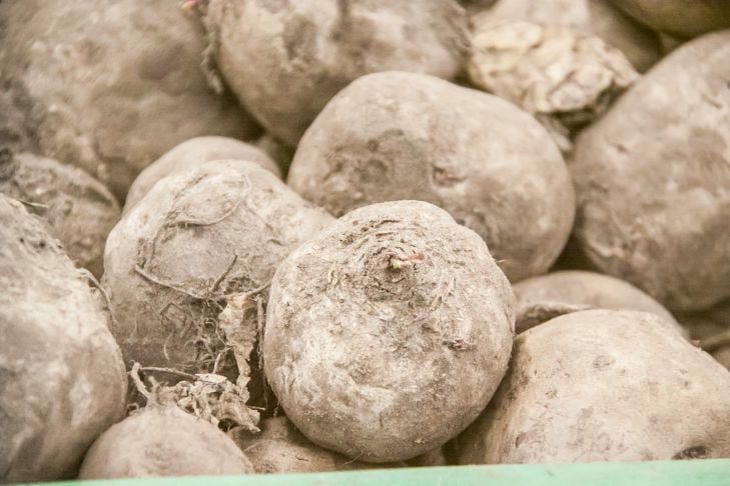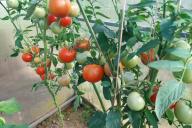Many gardeners face the problem of beets growing crooked and twisted.
This result is disappointing and raises questions.
Why did the beets grow crooked and what can be done to avoid this problem in the future?

Wrong choice of soil
One of the main reasons why beets can grow crooked is due to the wrong choice of soil.
Beets prefer loose, fertile and well-drained soil. If the soil is heavy and clayey, the roots will have difficulty growing and forming, which will lead to their deformation.
You should also avoid excessive soil acidity, which negatively affects the growth of beets.
Incorrect watering
Watering plays a key role in the formation of straight roots. Irregular or excessive watering can lead to crooked beets.
Lack of moisture during the period of active growth causes stress in the plant, which is reflected in the shape of the root crops.
Overwatering also has a negative effect on beets, leading to rotting and deformation. The optimal watering regime is moderate and regular, especially during the period of root crop formation.
Incorrect application of fertilizers
Beets require a balanced diet for normal development. Excess or deficiency of certain nutrients can cause root crops to become crooked.
For example, excessive application of nitrogen fertilizers leads to active growth of green mass to the detriment of root crops.
Potassium and phosphorus deficiency also negatively affects the quality of beets. It is important to maintain a balance and use fertilizers according to the needs of the plant.
Thickened plantings
Dense plantings lead to competition between plants for light, water and nutrients. As a result, beets grow under stress and lack of resources, which causes them to become deformed.
It is recommended to maintain an optimal distance between plants to ensure sufficient space for the growth and development of each root crop.
Pests and diseases
Pests and diseases can significantly degrade the quality of beets, making them gnarled and unattractive. Nematodes, wireworms and other soil pests damage the roots, causing them to become twisted and deformed.
Diseases such as root rot and scab also have a negative impact on beets. Prevention and timely control of pests and diseases will help maintain the health of plants and ensure a good harvest.
Untimely harvesting
Untimely harvesting of beets can cause their deformation. If beets are left in the ground for too long, the roots begin to overripen and lose their shape.
The optimal time for harvesting is when the roots have reached the desired size, but have not yet begun to age. Proper storage is also important to avoid further damage to the beets after harvesting.








